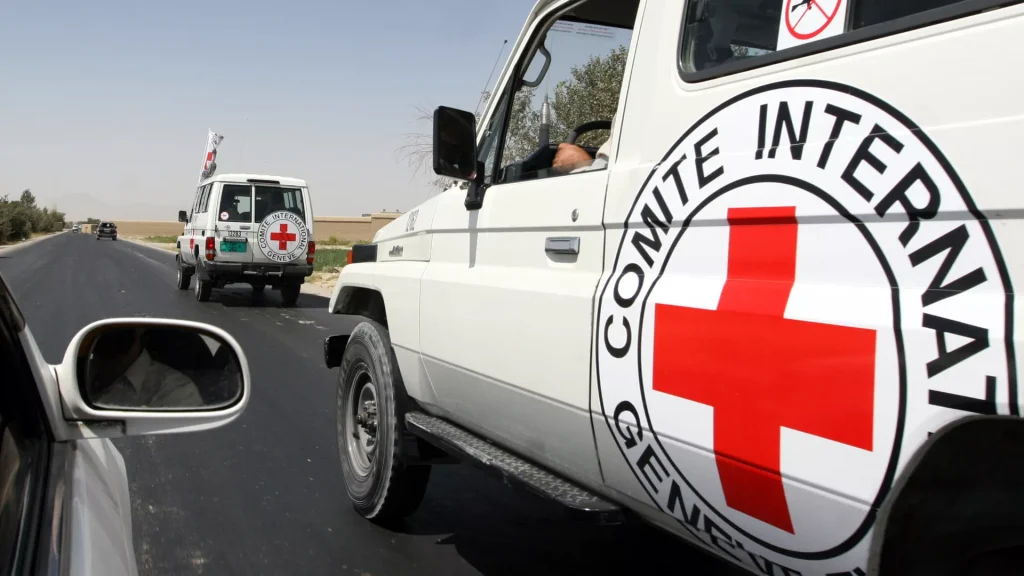ICRC Urges Swift Action to Protect Civilians from Explosive Weapons in Cities

As the world prepares for the Second International Conference on the Political Declaration to Strengthen the Protection of Civilians from the Use of Explosive Weapons in Populated Areas, the International Committee of the Red Cross (ICRC) has called on governments to turn commitments into concrete action.
In its latest set of recommendations ahead of the conference, to be held in San José, Costa Rica, from November 18 to 20, 2025, the ICRC welcomed the progress made since the Declaration’s adoption in 2022 but warned that civilian suffering caused by heavy explosive weapons in populated areas remains “unacceptable and on a shockingly large and ever-increasing scale.”
“The use of explosive weapons in cities continues to cause death, injury, lifelong disability, and severe psychological trauma,” the ICRC stated, adding that disruptions to basic services such as water, health care, and electricity further deepen the humanitarian crisis.
Since 2022, 88 States have endorsed the Declaration, a political framework designed to curb civilian harm during urban warfare. The process, according to the ICRC, has fostered international dialogue and cooperation between governments, militaries, and humanitarian actors. However, the organization emphasized that “the urgency of translating commitments into changes on the ground” cannot be overstated.
A Call for National Implementation
The ICRC urged all attending States to establish firm national frameworks to implement the Declaration’s provisions. This includes translating the text into national languages, appointing focal points across ministries, especially defence and foreign affairs, and allocating sufficient financial and human resources.
Countries were also encouraged to integrate the Declaration into their national committees on international humanitarian law (IHL) and to actively disseminate its principles within armed forces.
Building Practical Tools and Sharing Good Practices
To strengthen implementation, the ICRC recommended that States share technical details on how they are applying the Declaration domestically. Beyond general statements, the organization called for detailed, declassified documentation to be exchanged among countries to support peer learning.
“Technical exchanges are essential,” the ICRC noted, urging governments to contribute concrete examples to the UN Office for Disarmament Affairs (UNODA) database and to institutionalize the collection of good practices within armed forces.
Reviewing National Policies and Practices
The report further calls on States to conduct comprehensive reviews of their national policies and practices on the use of explosive weapons in urban settings. These reviews should identify gaps, areas for improvement, and opportunities for international cooperation. Based on their findings, governments are encouraged to develop national implementation plans with clear timelines.
Promoting Universal Endorsement
While acknowledging progress, the ICRC urged non-signatory States to endorse the Declaration “without delay” and begin implementing its commitments immediately. It also called on States to use regional and multilateral platforms to advocate for broader adherence and to engage in dialogues with non-state armed groups about the Declaration’s principles.
The ICRC also encouraged governments to publicly condemn the humanitarian impact of explosive weapons in populated areas and to commit to restricting or refraining from their use when civilians or civilian infrastructure could be harmed.
A Humanitarian Imperative
Despite the Declaration’s momentum, the ICRC stressed that many civilians continue to suffer from displacement, destroyed infrastructure, and unexploded ordnance long after hostilities end.
The organization’s appeal serves as a reminder that political commitments alone are insufficient. “National and international efforts must be significantly accelerated,” the ICRC emphasized, underscoring that protecting civilians in conflict zones is not just a political goal but a humanitarian imperative.

SUBSCRIBE TO OUR NEWSLETTER












